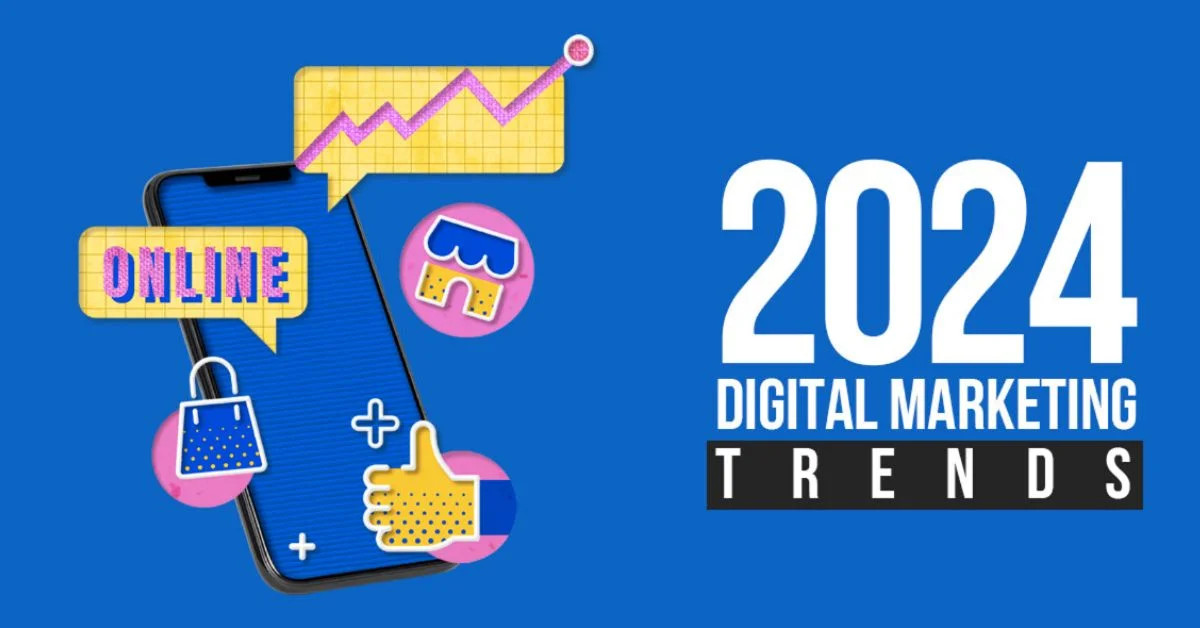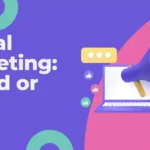As of 2024, digital marketing continues to evolve rapidly, driven by technological advancements and changing consumer behavior. Among the numerous trends shaping the digital marketing landscape, one stands out as particularly influential: the integration of Artificial Intelligence (AI) and Machine Learning (ML) into marketing strategies.
Understanding AI and ML in Digital Marketing
AI and ML refer to systems and algorithms that can learn from data, make decisions, and predict outcomes without being explicitly programmed for specific tasks. In digital marketing, these technologies are used to analyze large sets of data, understand consumer behavior, and automate complex marketing tasks.
Personalization at Scale
One of the primary ways AI and ML are revolutionizing digital marketing is through personalization. AI algorithms can process vast amounts of data to understand individual customer preferences, behaviors, and purchase history. This enables marketers to tailor content, recommendations, and advertisements to individual consumers, enhancing the user experience and increasing engagement and conversions.
Predictive Analytics
AI and ML excel in predictive analytics, which involves using data, statistical algorithms, and machine learning techniques to identify the likelihood of future outcomes based on historical data. This can help marketers anticipate customer needs and preferences, allowing for more proactive and targeted marketing strategies.

Chatbots and Virtual Assistants
AI-powered chatbots and virtual assistants are becoming increasingly sophisticated, providing customers with instant, personalized assistance. These tools can handle a range of tasks, from answering customer queries to providing product recommendations and assisting with purchases, thereby improving the customer service experience and freeing up human resources for more complex tasks.
Improved Customer Insights
AI and ML provide deeper and more accurate insights into customer behavior. By analyzing data from various touchpoints, marketers can gain a comprehensive understanding of the customer journey. This helps in creating more effective marketing strategies, optimizing the customer experience, and identifying new opportunities for engagement and conversion.
Enhanced Content Creation and Optimization
AI is also making significant strides in content creation and optimization. Tools powered by AI can assist in creating content, suggesting topics based on trending subjects or consumer interests, optimizing content for search engines, and even generating basic written content, making the content creation process more efficient.
Programmatic Advertising
Programmatic advertising, which uses AI to automate the buying of ads and targets specific audiences, is becoming increasingly prevalent. This allows for more efficient ad placements, improved targeting, and better optimization of advertising budgets, resulting in higher ROI for marketing campaigns.
Voice Search Optimization
With the rise of voice-activated devices, optimizing for voice search is becoming crucial. AI and ML play a significant role in understanding and processing natural language, helping businesses optimize their content for voice search queries and improving their visibility in voice search results.
Social Media Insights and Automation
AI tools are being used to analyze social media data to gain insights into consumer sentiments, trends, and behaviors. Additionally, AI-driven automation tools help in scheduling posts, targeting ads, and even engaging with users, enhancing social media marketing efforts.

Email Marketing Optimization
AI is transforming email marketing by enabling hyper-personalization, optimizing send times, and analyzing user interactions to improve email campaigns. This leads to higher engagement rates, better open rates, and more effective email marketing strategies.
Augmented Reality (AR) and Virtual Reality (VR)
While not solely reliant on AI and ML, AR and VR technologies are being enhanced by these systems to create more immersive and interactive marketing experiences. Brands are using AR and VR to provide customers with unique experiences, such as virtual try-ons, product demos, and immersive brand stories.
Challenges and Ethical Considerations
While AI and ML offer immense benefits, they also pose challenges, particularly in terms of data privacy, ethical use of AI, and the potential for job displacement in some sectors. Companies must navigate these challenges responsibly, ensuring that their use of AI in marketing respects consumer privacy and ethical standards.
The Human Element
It’s important to remember that AI and ML are tools to augment human marketers, not replace them. The human element – creativity, empathy, and strategic thinking – remains crucial in digital marketing. AI and ML should be used to enhance these human skills, not supplant them.

Preparing for the Future
To stay competitive in the ever-evolving digital marketing landscape, businesses need to stay informed about AI and ML developments and be ready to integrate these technologies into their marketing strategies. This requires continuous learning, experimentation, and adaptation.
Conclusion
The integration of AI and ML into digital marketing is the biggest trend of 2024, fundamentally transforming how businesses interact with consumers, understand their needs, and create personalized experiences. By leveraging these technologies, marketers can create more efficient, effective, and engaging marketing strategies.
However, it’s crucial to balance the use of these technologies with ethical considerations and the irreplaceable human elements of creativity and strategic thinking. As we move forward, the businesses that best combine the power of AI and ML with the unique strengths of human marketers will










